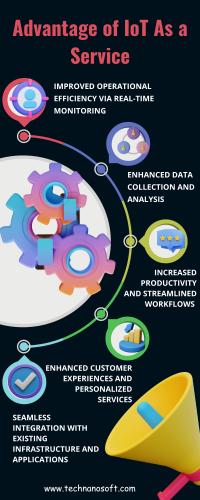Using Blockchain in Your Next software Development project – What are the Benefits?

Blockchain technology has been making waves in recent years due to its potential to revolutionize the finance, healthcare, and supply chain management industries. However, its applications extend far beyond these sectors. Blockchain can also be used in software development to create decentralized, transparent, and secure systems.
This article will discuss the basics of blockchain technology, its use cases in software development, and how it can benefit.
What is Blockchain Technology?
Blockchain is a decentralized, distributed ledger technology that records transactions in a secure, tamper-proof, and transparent manner. It is a database shared among a network of computers called nodes that collectively maintain and validate the ledger.
Each block in the chain contains a cryptographic hash of the previous block, a timestamp, and a list of transactions. Once a block is added to the chain, it cannot be altered without invalidating all subsequent blocks, making the ledger immutable.
The use of cryptography and distributed consensus algorithms ensures that the ledger is secure and trustworthy. Since the ledger is distributed among nodes, no central authority controls it, making it resistant to censorship and attacks.
Use Cases of Blockchain in Software Development
1. Smart Contracts
Smart contracts are self-executing contracts with the terms of the agreement written in code. They enable parties to enter into a contract without the need for intermediaries, reducing costs and increasing transparency.
Blockchain technology provides a secure and decentralized platform for executing smart contracts. Smart contracts can be used in software development for payment processing, supply chain management, and identity verification tasks.
2. Decentralized Applications
Decentralized applications, or DApps, run on a blockchain network instead of a central server. They are designed to be transparent, secure, and resistant to censorship.
Blockchain technology provides a platform for developing DApps that are decentralized, transparent, and secure. They can be used in software development for data sharing, voting, and crowdfunding tasks.
3. Digital Identity Management
Digital identity management involves verifying and authenticating the identity of users in a digital environment. Blockchain technology provides a secure and tamper-proof platform for storing and managing digital identities.
Blockchain-based identity management systems can be used in software development for user authentication, access control, and identity verification tasks.
Benefits of Blockchain in Software Development
- Security
Blockchain technology provides a secure platform for software development. The use of cryptography and distributed consensus algorithms ensures that the ledger is tamper-proof and resistant to attacks.
2. Transparency
Blockchain technology provides a transparent platform for software development. Since the ledger is shared among nodes, all transactions are visible to all participants, increasing transparency and reducing the possibility of fraud.
3. Decentralization
Blockchain technology provides a decentralized platform for software development. Since no central authority controls the ledger, it resists censorship and attacks.
4. Efficiency
Blockchain technology provides an efficient platform for software development. Smart contracts can automate tasks, reducing costs and increasing efficiency.
Conclusion
Blockchain technology is a powerful tool used in software development to create decentralized, transparent, and secure systems. Its applications extend beyond finance and supply chain management, providing a platform for tasks such as digital identity management and DApps.









Comments (1)
Eric Drula
17
DISTRIBUTEUR INDEPENDANT
Blockchain offers several benefits for software development projects, including increased trust, security, transparency and traceability of data in an enterprise network. It also redefines the role of software and application developers. In the Fintech industry, blockchain can offer benefits such as reducing dependency on a central system, improving reliability, reducing operational costs and accelerating processes. In addition, blockchain is being used in various projects, especially in the tec